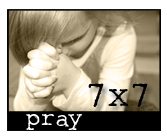'They couldn't be parted': After long life together, husband and wife die of natural causes within 23 hours of each other.
By DOUG IRVING
The Orange County Register
Santa Ana -- Jerry Aten didn't last a day without his wife Marilyn.
She died on a Monday evening last month. He tried to give her one last kiss, but he was too unsteady to get out of his wheelchair. He held her hand, laid his head on her bed, and cried.
Their friends always use the same word to describe Jerry and Marilyn: inseparable. And so, 23 hours later, when his caretaker heard his breath go heavy and deep, and then stop, it seemed to them more a gift than a surprise.
Doctors who work with the elderly say it's not unusual for the death of one spouse to make the other feel more at peace with dying as well. Some researchers even believe that the loss of a loved one can stun the heart and cause symptoms similar to a heart attack, a phenomenon often called "broken heart syndrome."
But what happened with Jerry, 89, and Marilyn, 85, left even their pastor searching for words. "It's almost like they planned their departure perfectly," said Rev. Wilfredo Benitez of St. Anselm of Canterbury Episcopal Church in Garden Grove.
"I don't have any explanation for that. I can't say whether God planned it," he added. "It just seemed to me that the bond between the two of them was so strong that, even in death, they couldn't be parted."
They met on a blind date. He was a Michigan farm boy stationed with the Army in Northern California. She was a small-town California girl who always called him "Honey."
They were married 65 years ago in April. He went to work as a chemist; she stayed home and raised their only son, David. They bought a house with a big front lawn on a quiet street in Garden Grove, spent their weekends rooting for the Angels, spent their summers traveling the country in their camper.
There were rough spots, of course, but they did their best to live by the rule they had set early in their relationship. Never go to bed angry.
"There was always a little touch," said Pat Smith, a neighbor who was close to the Atens. "He'd sit down and she'd serve him dinner, and she'd touch him on the shoulder."
Marilyn was rushed to the hospital with stomach pain on Christmas Eve a few years ago. Doctors found cancer, removed two-thirds of her colon, and told her she would probably die in a matter of months. But she beat the cancer into remission with chemotherapy.
Jerry, meanwhile, was starting to get confused. Names didn't come to him so quickly anymore. One night, he walked out the door and wandered down the street. Doctors diagnosed Alzheimer 's disease.
But even on his worst days, he knew who Marilyn was. A few times, she checked him into a care center, and he would cry for her when she left. She brought him back home every time; "I can't stand not having him here," she told friends.
The pain in her stomach returned earlier this year, and she knew. She told her son, David, "If it's my time to go, it's my time to go." She and Jerry, she said, "had a great life together."
She died at home, in her bed. Jerry tried to lift himself out of his wheelchair to kiss her good-bye, then fell back and laid his head on her bed, next to her arm. He didn't say anything, just cried softly.
It was 11:40 p.m. on May 5.
Jerry woke up the next morning, talked to his son, greeted a neighbor. But he began crying again in the afternoon, and he was still crying when his caretaker, Theresa Palepale, helped him into bed that night.
She heard his breathing change and then stop about an hour later. She felt for a pulse, but didn't find one.
It was 10:40 p.m. on May 6.
Physicians would later determine that Marilyn had died of gastric cancer, and Jerry had died 23 hours later, to the minute, of cardiopulmonary arrest. They were buried in Riverside National Cemetery.
Their obituary ran in the newspaper on the day of the funeral. "Aten, Marilyn and Jerry," it read. "Together for eternity."


































